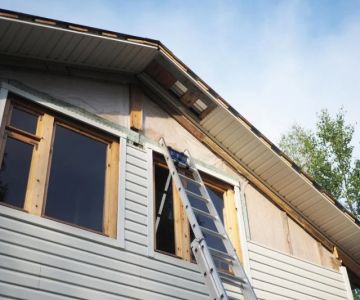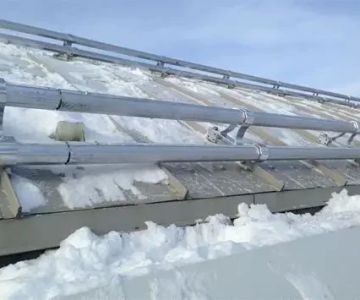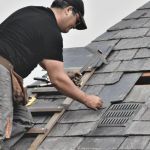
- understanding-the-cost-factors - Understanding the Cost Factors
- evaluating-your-financial-situation - Evaluating Your Financial Situation
- estimating-materials-and-labor - Estimating Materials and Labor
- planning-for-unexpected-expenses - Planning for Unexpected Expenses
- financing-options-for-homeowners - Financing Options for Homeowners
- real-life-examples-from-homeowners - Real-Life Examples from Homeowners
- how-total-roofing-hub-can-help - How Total Roofing Hub Can Help
Understanding the Cost Factors
When learning how to budget for a roof replacement project, homeowners must first understand what drives the cost. Factors such as roof size, slope, materials, and regional labor rates can significantly influence pricing. For instance, asphalt shingles are generally more affordable, while metal or slate roofs command higher costs due to durability and installation complexity.

Northland Roofing LLC
BethelWestern Connecticut Planning RegionConnecticut
11 Stony Hill Rd, Bethel, CT 06801, USA
Evaluating Your Financial Situation
Before committing to a roof replacement, assess your financial readiness. Reviewing your savings, available credit, and household budget ensures you can cover the expenses without unnecessary stress. Creating a clear spending plan can help balance affordability with quality, ensuring your home gets the protection it deserves without compromising financial stability.

Sears Roofing
Silver SpringMontgomery CountyMaryland
14014 Connecticut Ave, Silver Spring, MD 20906, USA
Estimating Materials and Labor
Labor often accounts for 40%–50% of total project costs, making it one of the most important considerations. Materials also vary widely in price depending on quality and brand. Requesting detailed estimates from multiple contractors helps you understand market rates. Asking for itemized breakdowns prevents hidden charges and allows you to compare costs more accurately.
Planning for Unexpected Expenses
One common mistake in budgeting for a roof replacement project is failing to account for surprises. Once old shingles are removed, contractors may discover rotted decking, damaged flashing, or structural issues. Setting aside at least 10%–15% of your budget as a contingency fund ensures you are prepared for these scenarios without derailing the entire project.
Financing Options for Homeowners
Roof replacement is a significant investment, but several financing solutions can make it more manageable. Options include personal loans, home equity lines of credit, or contractor-offered financing programs. Some homeowners may also qualify for insurance coverage if the damage is storm-related. Exploring these options early allows you to select the solution that aligns best with your budget and repayment comfort level.
Real-Life Examples from Homeowners
Consider a homeowner in Florida who initially underestimated costs by only budgeting for shingles. Once installation began, water damage to the decking added thousands to the project. On the other hand, a homeowner in Colorado prepared a detailed budget that included contingency funds. When unexpected repairs came up, they managed them without financial stress, proving the value of careful planning.
How Total Roofing Hub Can Help
Budgeting for a roof replacement project can feel overwhelming, but you don’t have to handle it alone. Total Roofing Hub provides resources for accurate cost estimation, contractor comparisons, and insights into material choices. By leveraging expert advice, you can create a realistic budget and avoid the financial pitfalls that many homeowners face during large-scale roofing projects.







 Skyline Designs Roofing5.0 (99 reviews)
Skyline Designs Roofing5.0 (99 reviews) Perfect Roofing Installations4.0 (60 reviews)
Perfect Roofing Installations4.0 (60 reviews) Dog Tags Construction LLC4.0 (16 reviews)
Dog Tags Construction LLC4.0 (16 reviews) Gutter Shutter of Central Maryland5.0 (9 reviews)
Gutter Shutter of Central Maryland5.0 (9 reviews) Sam Cline Handyman Services4.0 (37 reviews)
Sam Cline Handyman Services4.0 (37 reviews) Paramount Builders Inc.4.0 (302 reviews)
Paramount Builders Inc.4.0 (302 reviews) Should I Repair or Replace My Roof?
Should I Repair or Replace My Roof? Top 10 Signs Your Roof Needs Immediate Repair Before It’s Too Late
Top 10 Signs Your Roof Needs Immediate Repair Before It’s Too Late The Pros and Cons of Vinyl Siding: Is It the Right Choice for Your Home?
The Pros and Cons of Vinyl Siding: Is It the Right Choice for Your Home? How to Choose a Reliable Roofing Contractor Near You – Expert Tips
How to Choose a Reliable Roofing Contractor Near You – Expert Tips Top 10 Signs Your Roof Needs Immediate Repair You Shouldn’t Ignore
Top 10 Signs Your Roof Needs Immediate Repair You Shouldn’t Ignore How to Spot Hail Damage on Your Roof | Quick Guide for Homeowners
How to Spot Hail Damage on Your Roof | Quick Guide for Homeowners